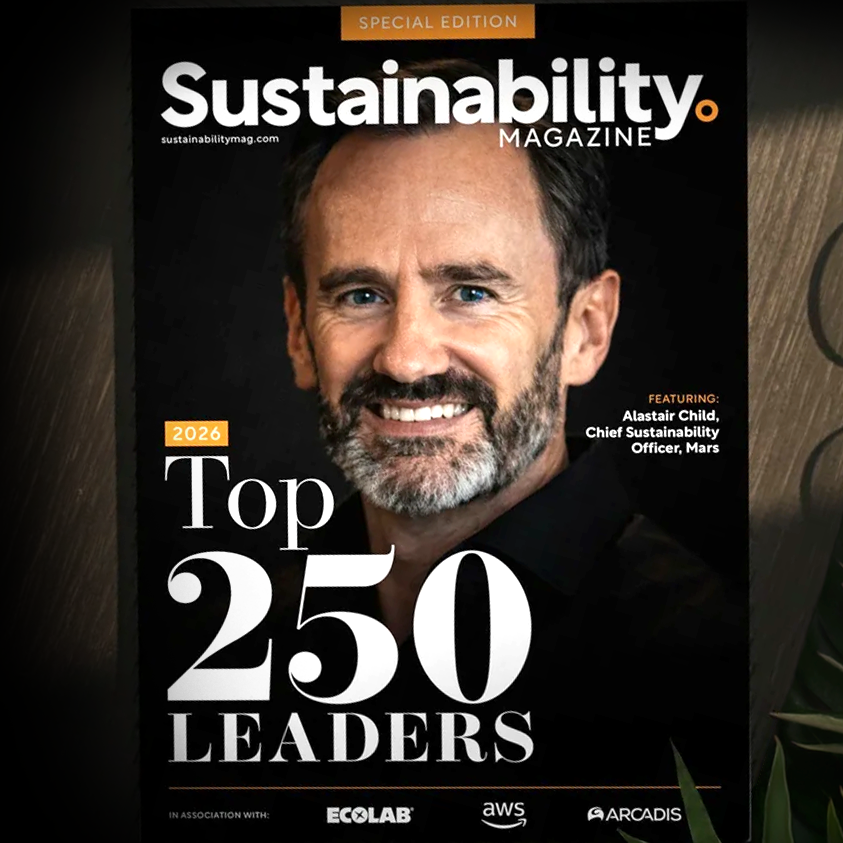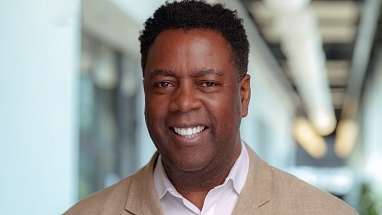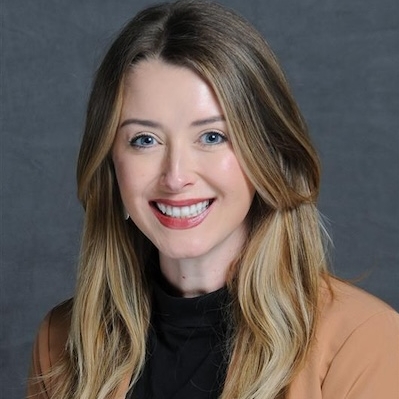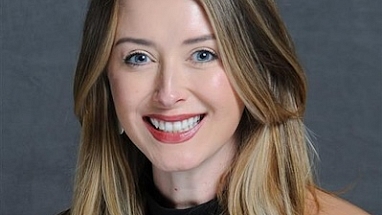Reducing our carbon pawprint: ow our Associate Dr. Ellie West and a team of veterinary & sustainability professionals are pioneering sustainable practices in veterinary medicine
Did you know that approximately 95% of the volatile gases used during a typical anesthetic procedure are exhaled into the atmosphere, acting as potent greenhouse gases (GHGs)? In fact, each ton of anesthetic gas emitted is significantly more impactful(Opens a new window) on the environment than one ton of carbon dioxide. So, even the gases that help keep our pets comfortable during surgery have an environmental footprint!
As a leading provider of veterinary care, we have a responsibility to take climate action at scale and lead the way toward more sustainable practices. Our Sustainable in a Generation Plan focuses on helping shape a future with a healthier planet, thriving people and pets and a more inclusive society. In the world we want tomorrow, the planet is healthy, which is why we have a goal to cut carbon emissions by half by 2030 and be Net Zero by 2050.
How are we doing, overall? Across Mars, with all of our net zero work, by the end of 2023, we have reduced absolute GHG emissions by 16% across our value chain since 2015 while growing our business more than 60%.
Now, meet one of our Associates, Dr. Ellie West.
Dr. West is EBVS® European Specialist in Veterinary Anaesthesia and Analgesia and Healthy Planet Lead at our UK veterinary group Linnaeus(Opens a new window) and our European veterinary group AniCura(Opens a new window). She’s been part of Mars Veterinary Health(Opens a new window) for five years.
Dr. West and Mars Veterinary Health(Opens a new window), through our UK veterinary group Linnaeus(Opens a new window) and in partnership with our Waltham Petcare Science Institute(Opens a new window), are piloting a first-of-its-kind innovative anesthetic gas capture solution from SageTech Veterinary(Opens a new window) to help prevent harmful greenhouse gases from entering the atmosphere.
In this Q&A, we dive into Dr. West’s story, her passions, and the ways her work supports our journey toward net zero greenhouse gas emissions by 2050.
Q: So, you’re in veterinary health but also sustainability. Why the combo of the two for you?
Dr. Ellie West: Sustainability has always been important to my family, and it became even more significant when my children were born. I found myself spending more time in nature and wanted to explain the natural world to them. In 2017, after completing my specialist exams in anesthesia, I started thinking about how I could contribute to sustainability at work. It started with a small initiative at Davies Veterinary Specialists, where I worked at the time, when we joined an accreditation scheme. This eventually led me to my current role, where I now lead environmental sustainability strategies for Linnaeus(Opens a new window) and AniCura(Opens a new window).
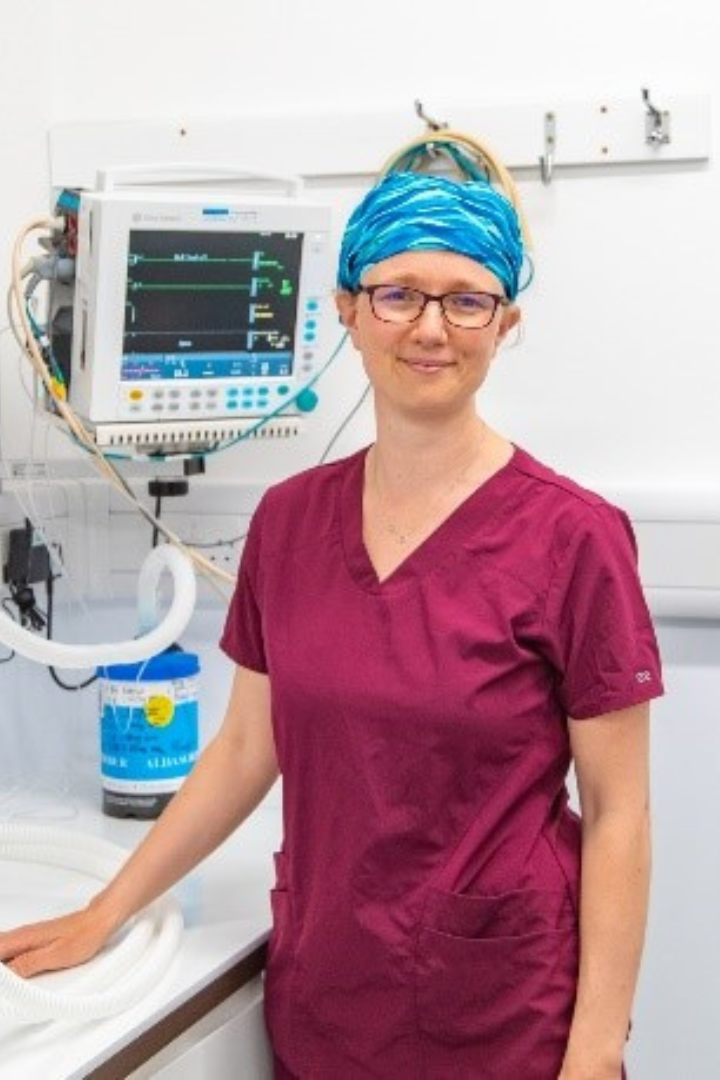
Every Mars business has a responsibility to reduce its carbon emissions.
Q: Veterinary sustainability is still an emerging space. What makes Mars Veterinary Health so future-focused?
Dr. Ellie West: At Mars Veterinary Health, we recognize the veterinary industry impacts our environment, society, and pets, and we have a unique opportunity to help make those impacts positive due to how we work at Mars. Every Mars business has a responsibility to reduce its carbon emissions, and as a leading global provider of veterinary care, we know we can take climate action at scale in pet healthcare and lead the way toward more sustainable practices. One of our first steps was to measure the carbon footprint across Mars Veterinary Health. From there, we identified ways to reduce GHG emissions to contribute to Mars’ climate change targets.
Q: How do you balance sustainability initiatives while ensuring quality pet care?
Dr. Ellie West: As veterinary professionals, the quality of care we deliver to pets is always a top priority. Interestingly, many sustainability initiatives are compatible with or even have the potential to improve quality of care. For example, we eliminated the use of nitrous oxide in our Linnaeus clinics by educating our Associates and providing alternative solutions. This not only reduced our environmental impact but also improved anesthesia training and care quality.
Q: What made you zero in on volatile anesthetic gases?
Dr. Ellie West: My background is in veterinary anesthesia, and it became apparent to me how significant the impact of volatile anesthetic agents really is. During a typical anesthetic procedure, less than five percent of the volatile anesthetic agent delivered to a patient is absorbed and metabolized, leaving approximately 95% of the volatile anesthetic to be exhaled. By mapping our anesthetic gas emissions and understanding their impact, we are implementing solutions and sharing best practices across our network.
Q: Can you talk about the challenges of implementing sustainability practices in veterinary clinics?
Dr. Ellie West: When I started thinking about veterinary sustainability, I assumed I could use resources and learnings from human healthcare but quickly realized even the human medical field was pioneering its own practices and learning in the process. So, we set out to discover and share anything we found. The biggest challenge has been affecting behavior change and managing the change process, so it isn’t overwhelming for our veterinary teams or distracting from quality of care. Instead, our goal has been making sustainability part of everyday practice without compromising —if not improving—quality and efficiency.
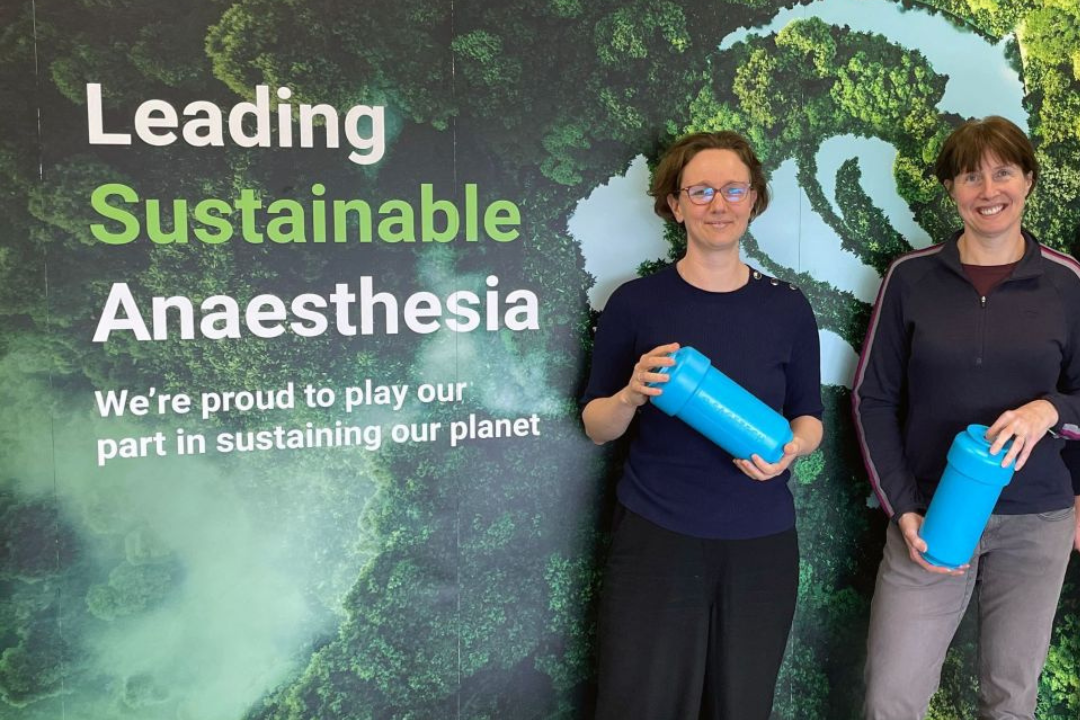

Q: Explain the gas capture technology and its role in reducing GHG emissions in veterinary clinics.
Dr. Ellie West: One of the innovative approaches we are piloting is an anesthetic gas-capture technology to mitigate greenhouse gas emissions from anesthetic procedures. SageTech’s trusted gas-capture technology—which is currently used in human healthcare—works by capturing the waste anesthetic agent breathed out during an operation by safely absorbing it into a specially developed reusable capture canister. These waste anesthetic agents can then be extracted from the filter, avoiding current routes for disposal of volatile anesthetic agents of incineration or release into the atmosphere. This innovative technology helps reduce GHG emissions and marks a significant step forward in our sustainability journey, aimed at contributing to a better future for the planet—and the people and pets who depend on it.
Q: What’s been eye opening about your sustainability journey?
Dr. Ellie West: I continue to be pleasantly surprised and encouraged by the high level of engagement from our Associates. People care deeply about sustainability and are eager to do what they can to contribute. Our veterinary Associates are incredibly adaptable, and making sustainable choices a norm has been a rewarding process for them and me.
Q: What advice would you give to someone entering the veterinary profession who’s passionate about sustainability?
Dr. Ellie West: Compared with when I started, there are now many tools available if you're a veterinary professional looking to reduce your environmental impact. In our Mars Veterinary Health(Opens a new window) businesses, we have several active programs directing Associates to the sustainable options that also help them do their job. Anyone should feel empowered to reach out to others engaged in sustainability (including me!) to get involved and lead in this area.
Q: What gives you hope about the future of the environment?
Dr. Ellie West: I believe we can all make a difference, and collective action is powerful. Mars is committed to leading by example and showing what’s possible. We have the tools we need to address environmental challenges, and it’s now about moving forward together. You can tackle eco-anxiety by taking meaningful action, no matter how small, and the significant progress you can make always surprises me.
Dr. West's dedication and leadership in our sustainability efforts in the veterinary field highlight our commitment to a healthier planet. By integrating sustainability into our operations and inspiring others, we’re committed to making significant strides toward our targets.




